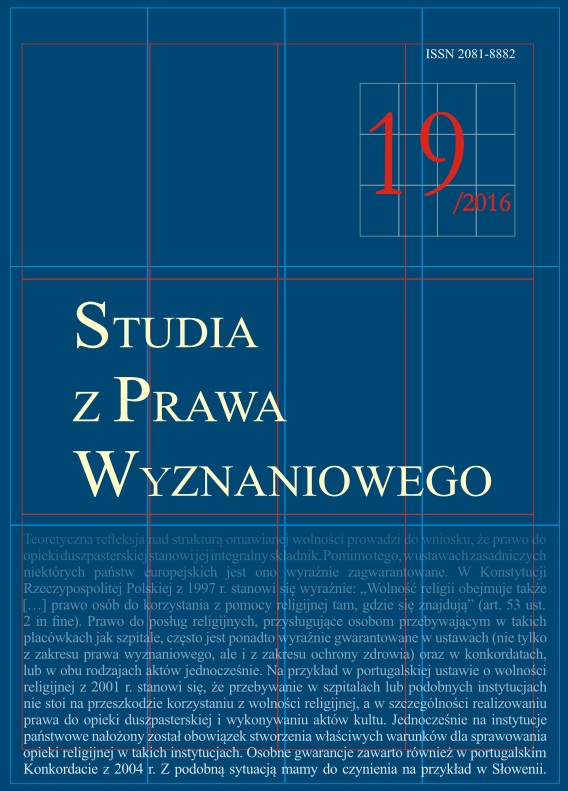Idea państwa świeckiego w protestantyzmie od połowy XVII do XX wieku
The Idea of a Secular State in Protestantism since the Mid-Seventeenth to the Twentieth Century
Author(s): Michał HucałSubject(s): Law, Constitution, Jurisprudence, History of Law, Constitutional Law, Canon Law / Church Law
Published by: Katolicki Uniwersytet Lubelski Jana Pawła II - Wydział Prawa, Prawa Kanonicznego i Administracji
Keywords: state; secular; Protestantism; evangelical
Summary/Abstract: At the beginning the concept of a secular state was absolutely alien for Protestant theologians, and their discussions concerned the degree of dependence of the religious organizations from the state or vice versa, and freedom of religion. The opinions of Protestantism on the secular state throughout history were neither consistent nor immutable, but emphasizing individualism contributed to the development of the protection of individual autonomy, and thus the separation of state and religions. Today, the last Protestant churches having the status of a religious organization actively moving towards dropping the last symbols of a religious state, which took place in the Kingdom of Sweden or are internally subjected to pressure to decide on such a step (eg. The Church of England). The concept of a secular state, devoid of anti-religious features and cooperating with religious organizations in matters of the common good (eg. Diakonia) is widely accepted in Protestantism, including Polish one.
Journal: Studia z Prawa Wyznaniowego
- Issue Year: 2016
- Issue No: 19
- Page Range: 175-193
- Page Count: 19
- Language: Polish

